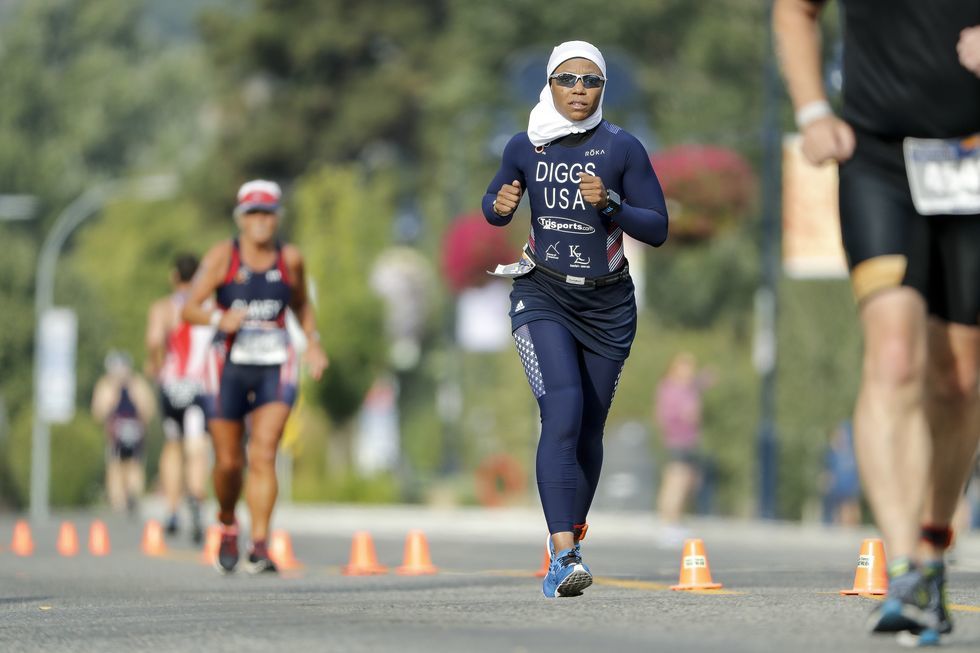
Khadijah Diggs declares that she is “Mother, Project Manager and a Triathlete.” Her mission, she says, is to promote a positive image of Muslim women through sport. Ms. Diggs is currently ranked in the top 5% of her age group by Ironman Triathlon. She is also the first African American woman to represent Team USA in Long Course Triathlon and the first Muslim woman to represent Team USA in any multisport event.
In this op-ed for Runners World, Ms. Diggs writes about the unfair hurdles she says she faces as a Muslim woman who competes fully covered. Here are some snippets from her powerful piece:
— Recently, while packing for my fifth appearance at the Triathlon Long Course National Championships in Miami, Florida, I thought about Noor Abukaram, the 16-year-old cross-country runner who was disqualified at a local Ohio meet for running in religious headwear. Because, along with packing the nutrition I would need for my race—my favorite goggles, cycling cleats, and running shoes—I also packed four different race kits. Not because of weather, or a great fashion sense, but because the race would likely be non-wetsuit, and like Noor, I am a hijabi. I race fully covered and constantly have to wonder what kit race officials are least likely to question.
–Last year, I was initially disqualified at the National Championships for my choice… The official told me that as a non-wetsuit race (because the water temperature was about 78 degrees Farenheit), my kit had violated the rules.“You raced in a wetsuit.” “No, I did not, sir. I raced in the kit I have on right now and a ROKA swim skin, like everyone else.” I was wearing ITU/USAT approved kit that was long-sleeved and long-legged, with no compression below the knee or elbow…The head referee—whom I had told I was racing fully covered at the athletes briefing—happened to walk up. I explained what had just transpired, and the disqualification was overturned.
— I still had to “check-in” with officials because there is no approved list of hijabi kits. “What if I didn’t have the confidence to defend my rights as an athlete, as a human being?” I thought. “If I hadn’t been a previous member of the US Triathlon Team, would the head referee still have listened to me?”
— There are no established rules for Muslim women in triathlon who wear hijab, so I had long feared this situation. In 2016, the first year I made the US Team, I prayed for WEEKS that the race was wet-suit legal. Every time I race, I am literally at the mercy of race directors as to whether my results will count.
— The demographic of the United States is changing daily, and it must be recognized that hijabi athletes are runners, ice skaters, triathletes. Any rules used to limit and dehumanize us must not be looked upon as acceptable.
— Like every athlete, I have many personal goals. But my biggest goal, the goal that never changes, is not just for me. My goal is to help establish rules and precedents for hijabi triathletes so that we never have to ask for permission to race. I want hijabis to be able to show up to a cross country event, a marathon, or a triathlon and for people not to wonder about her hijab—just how fast she can go.



